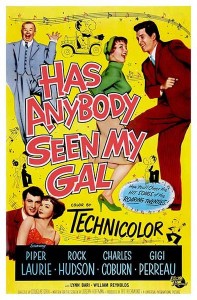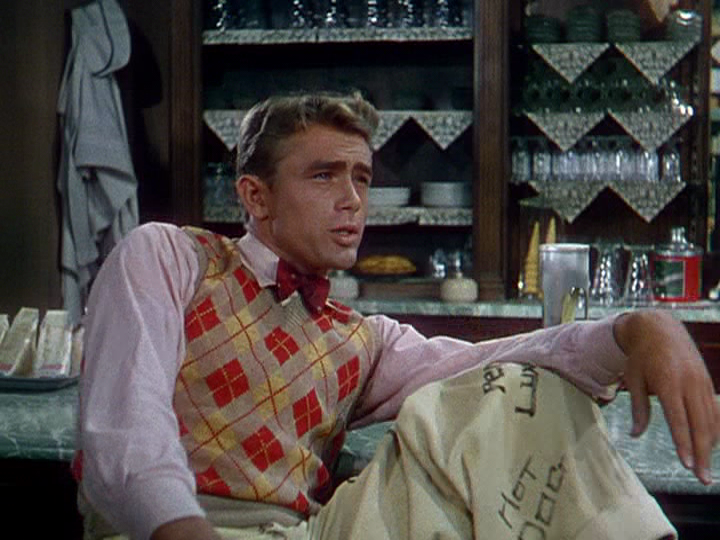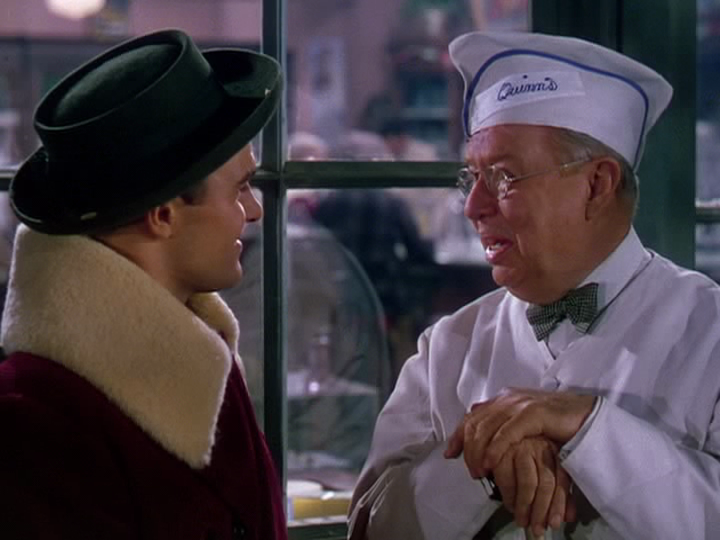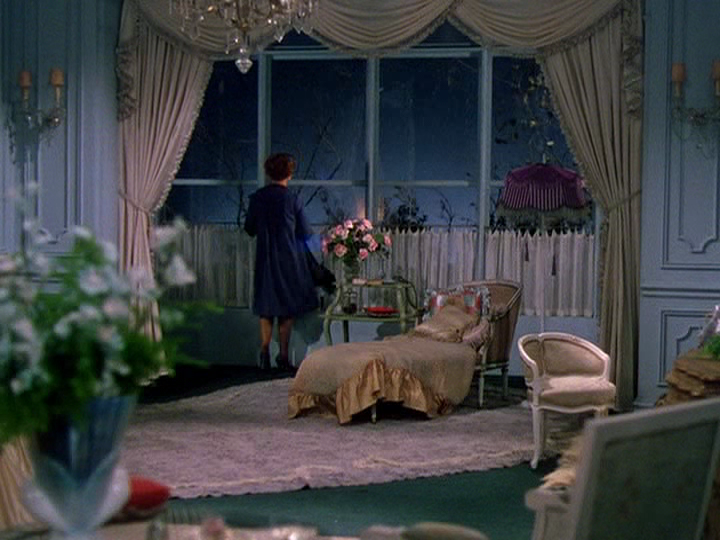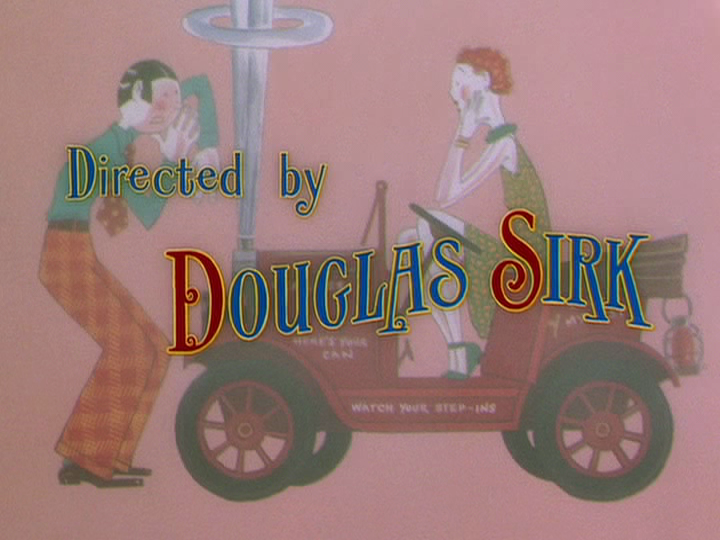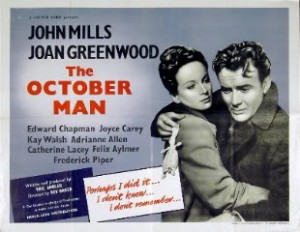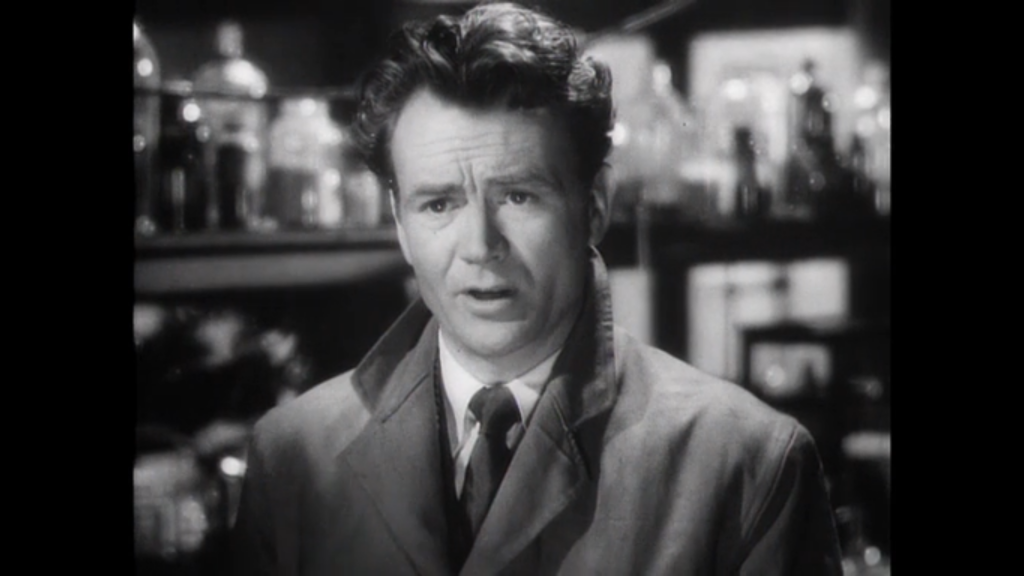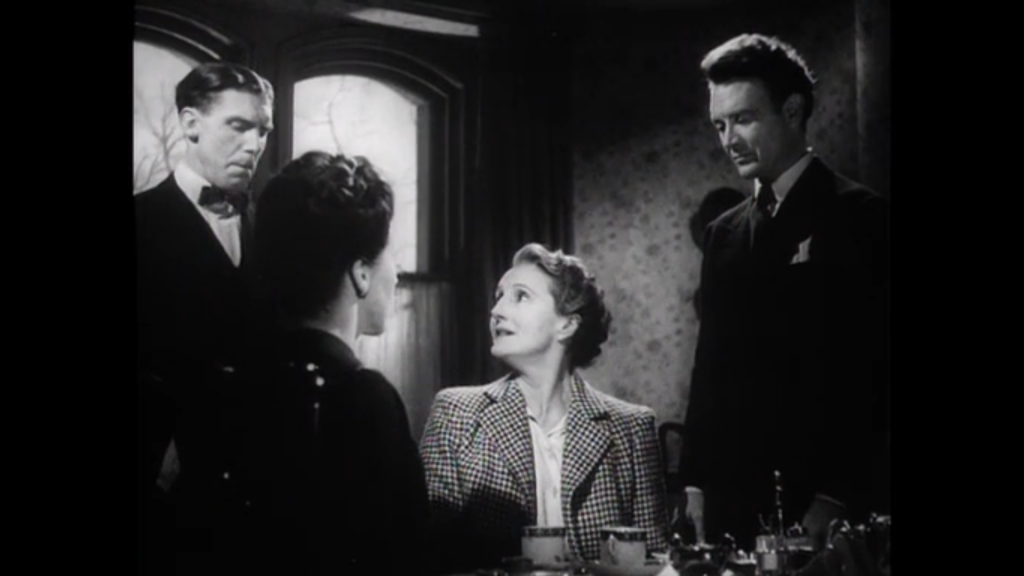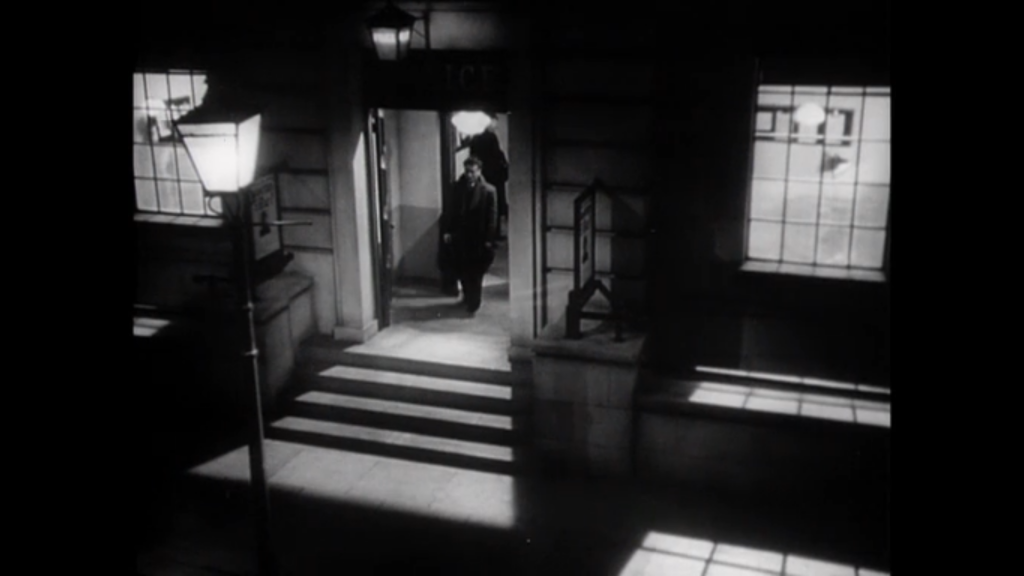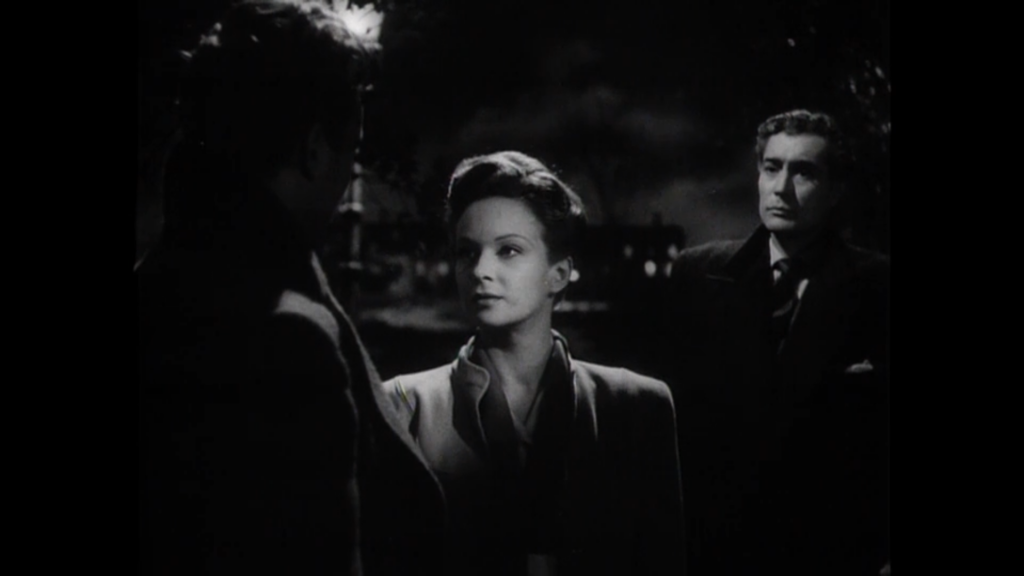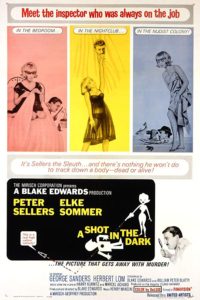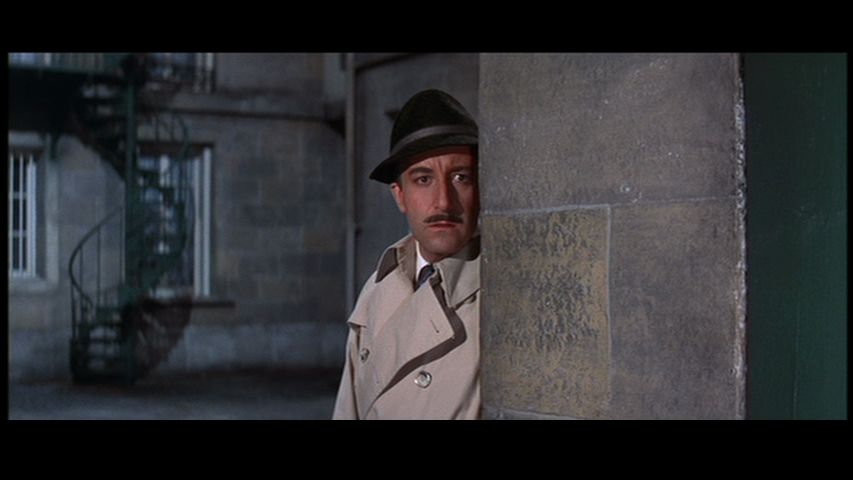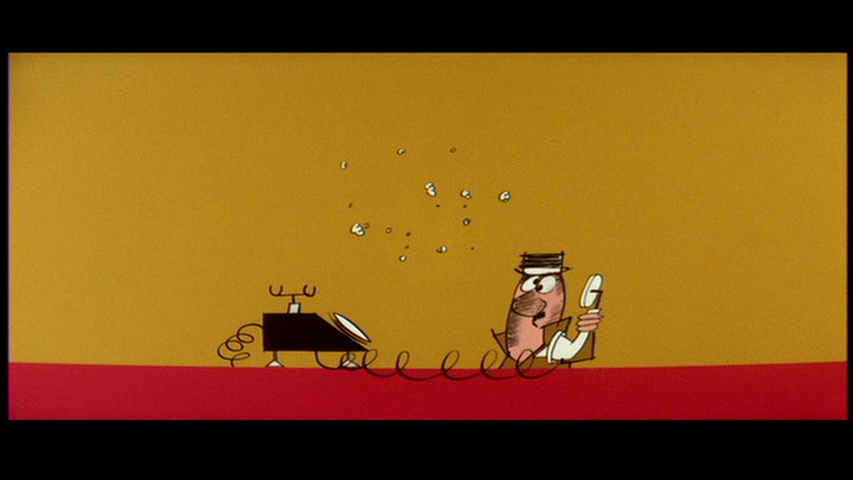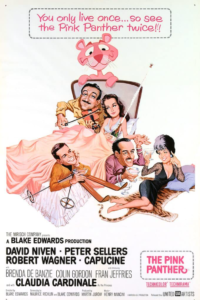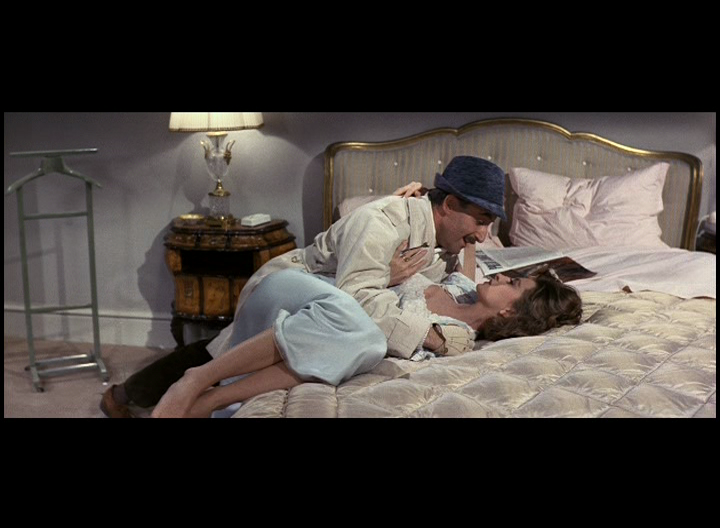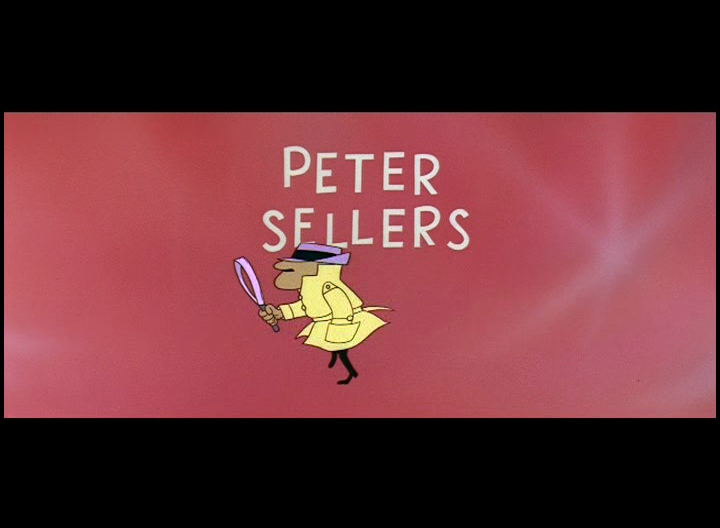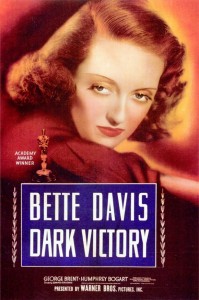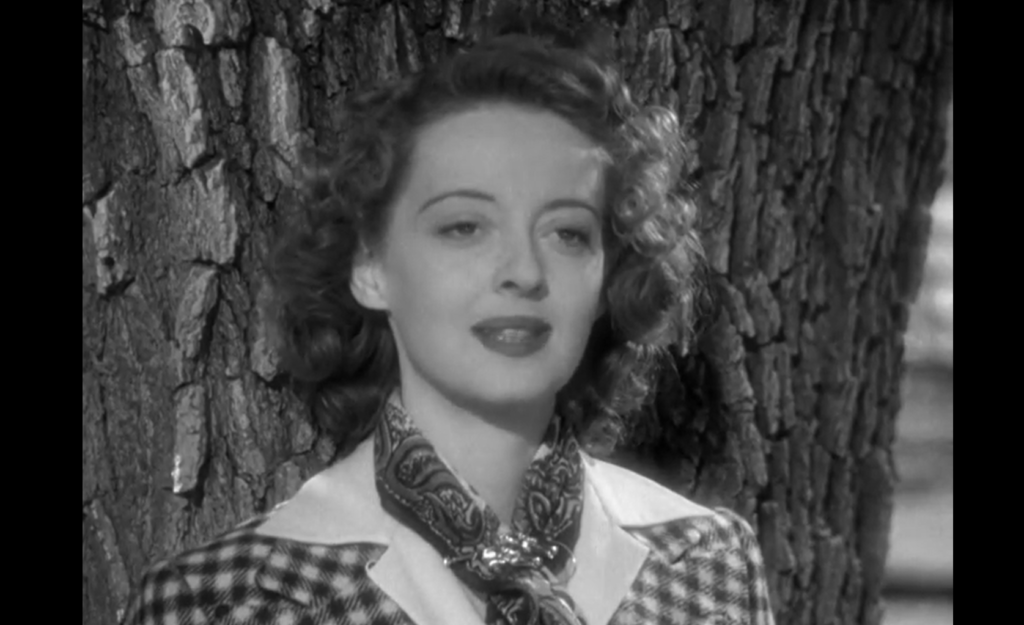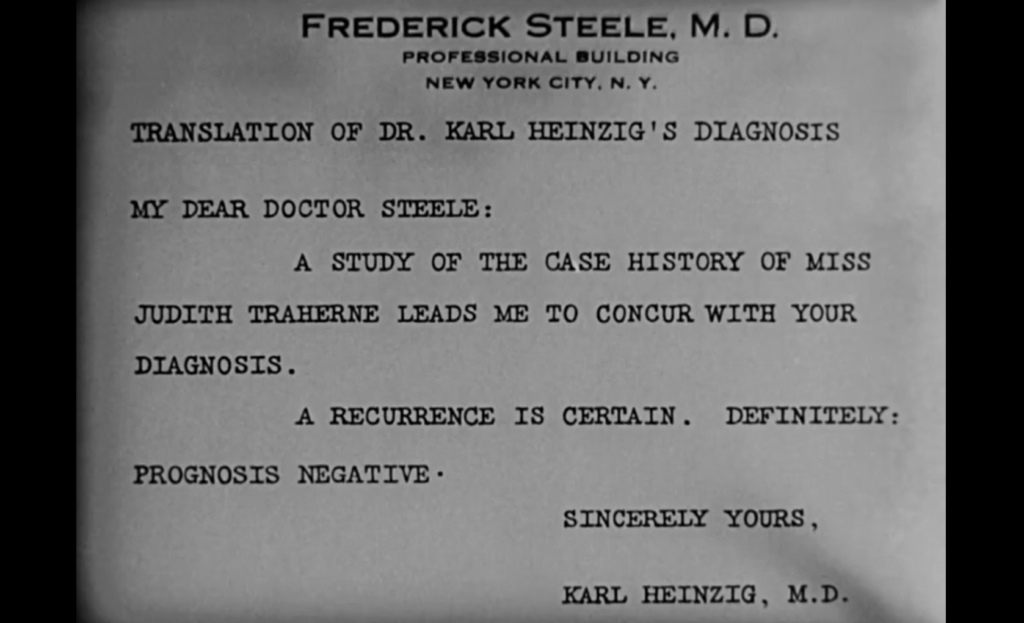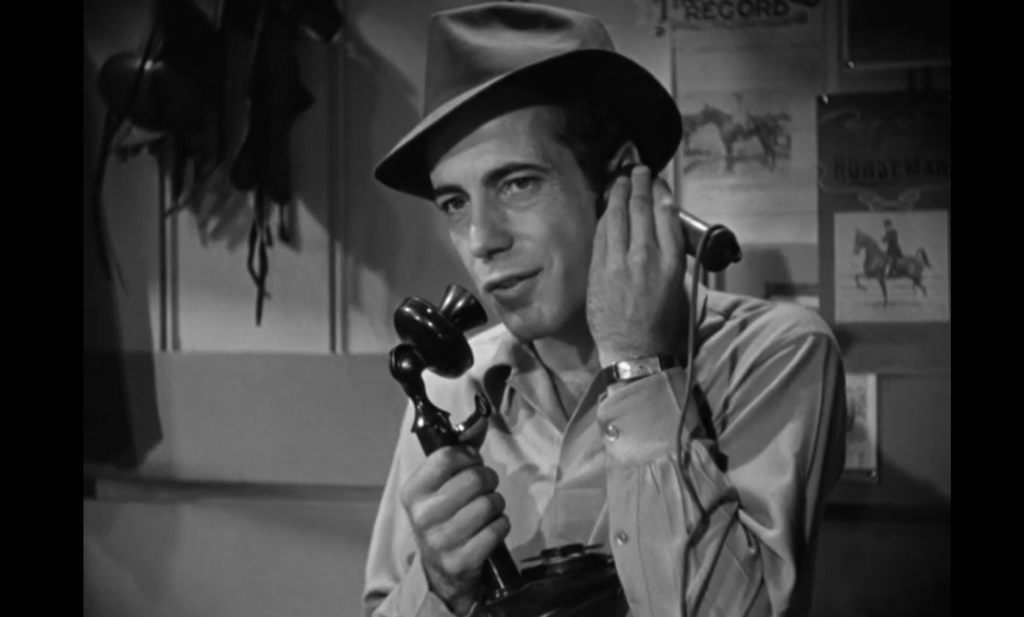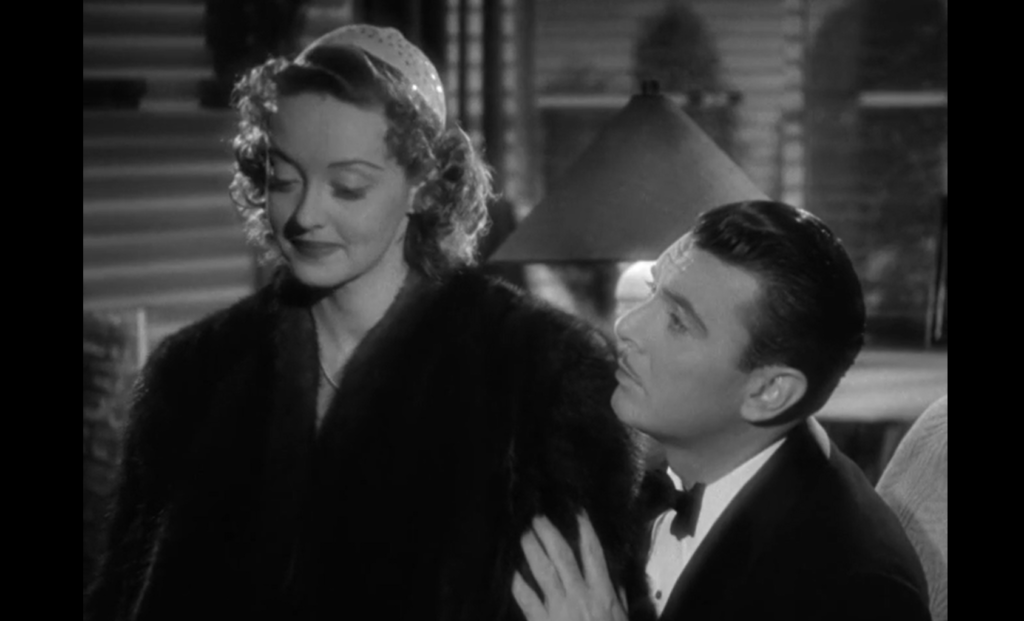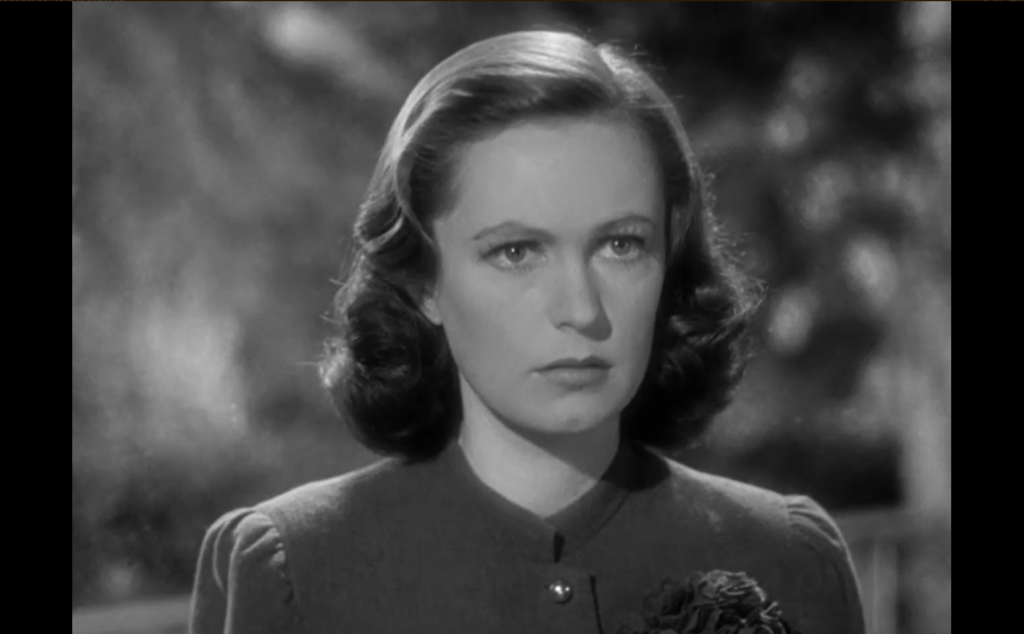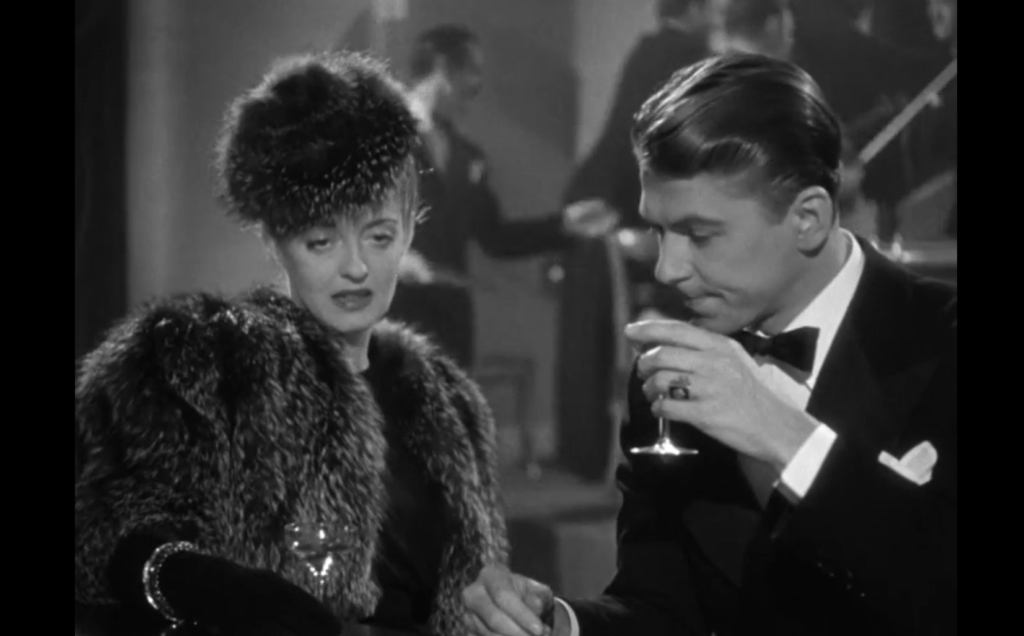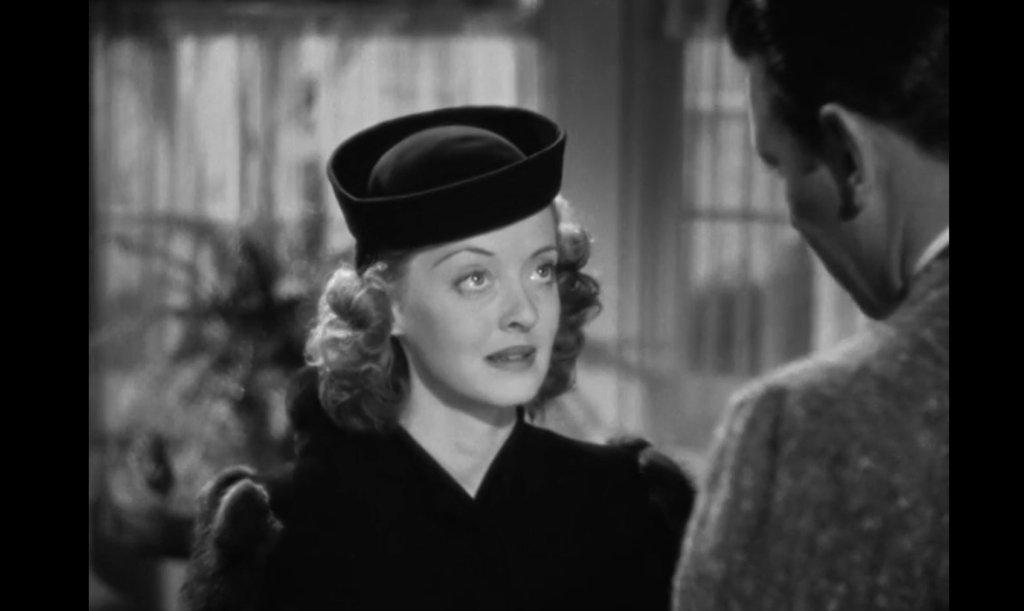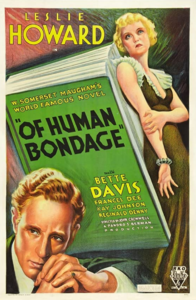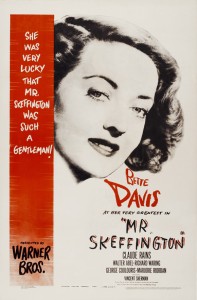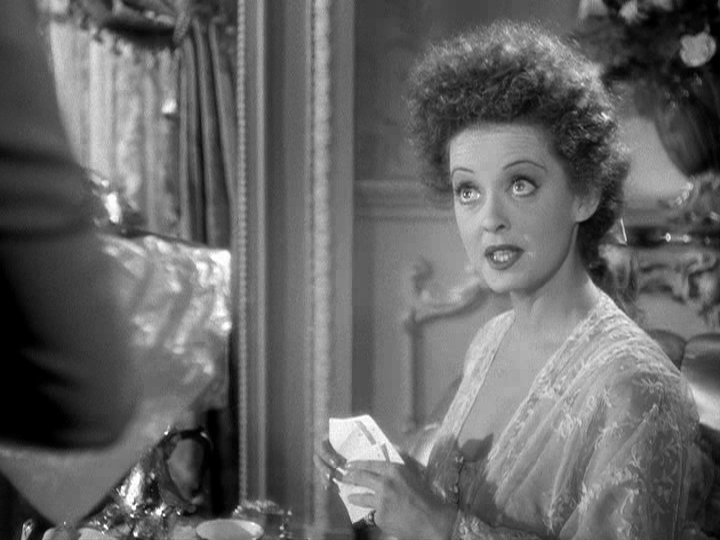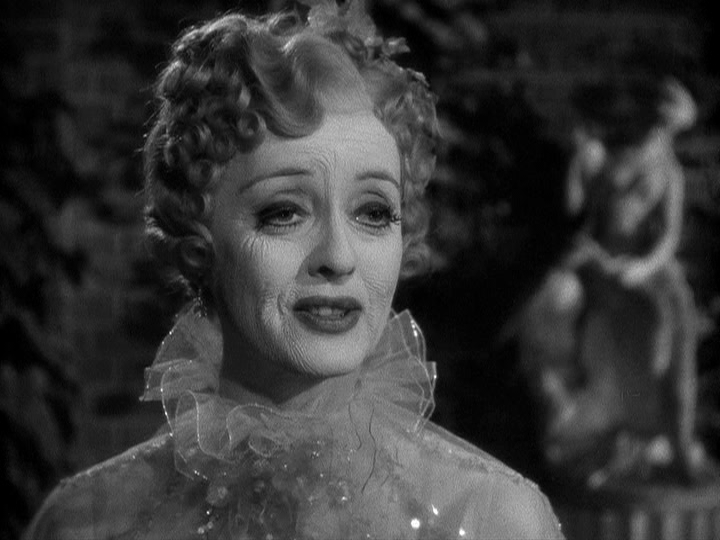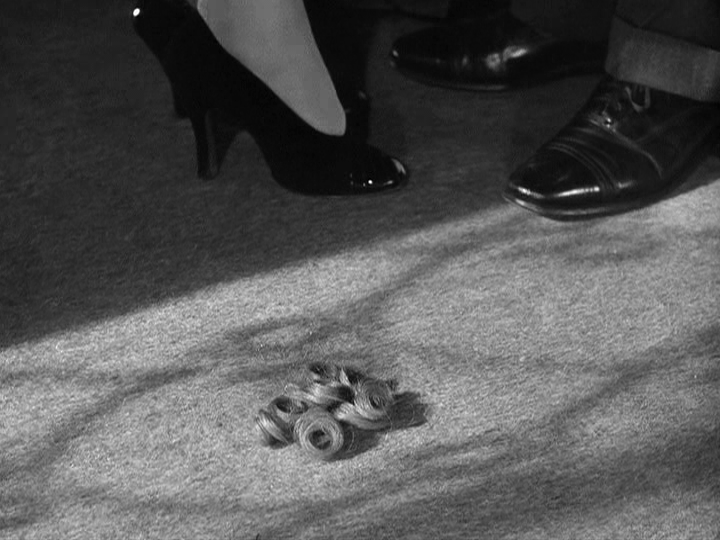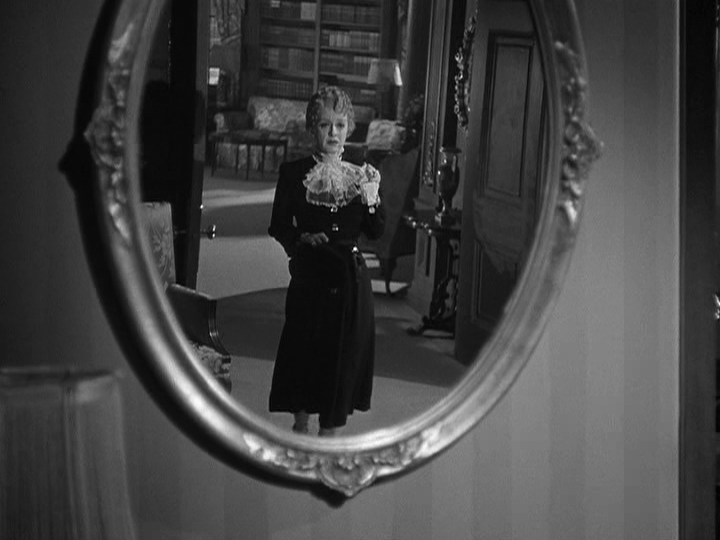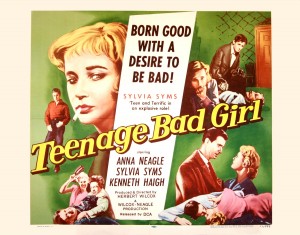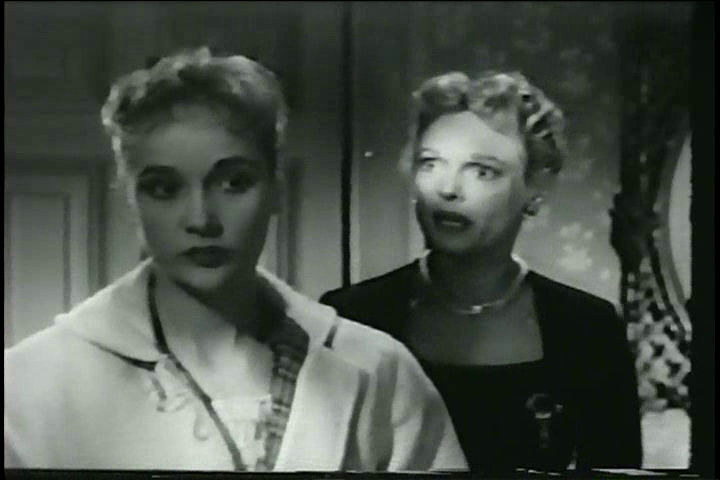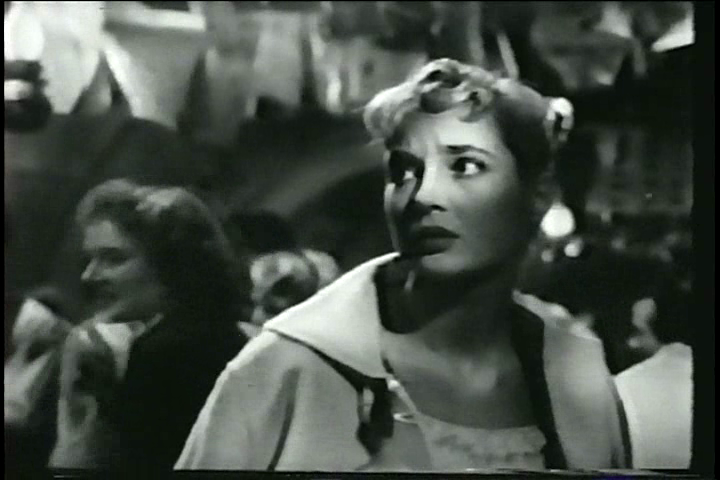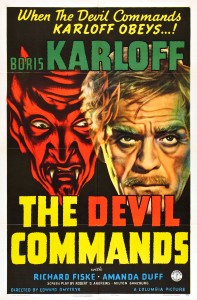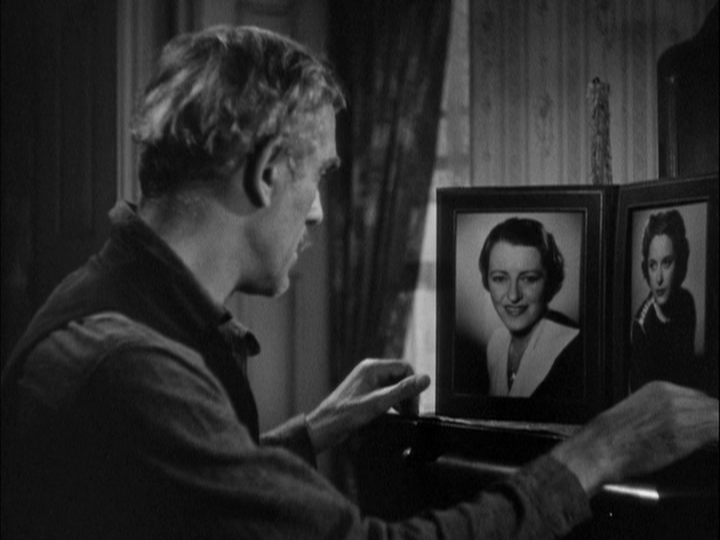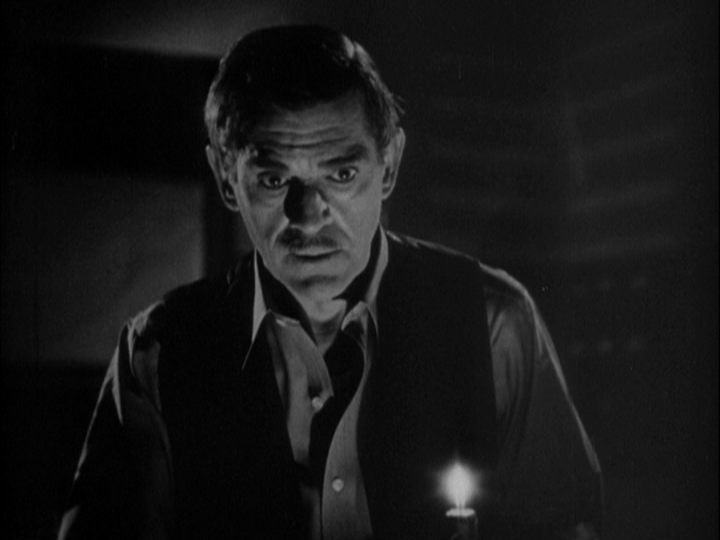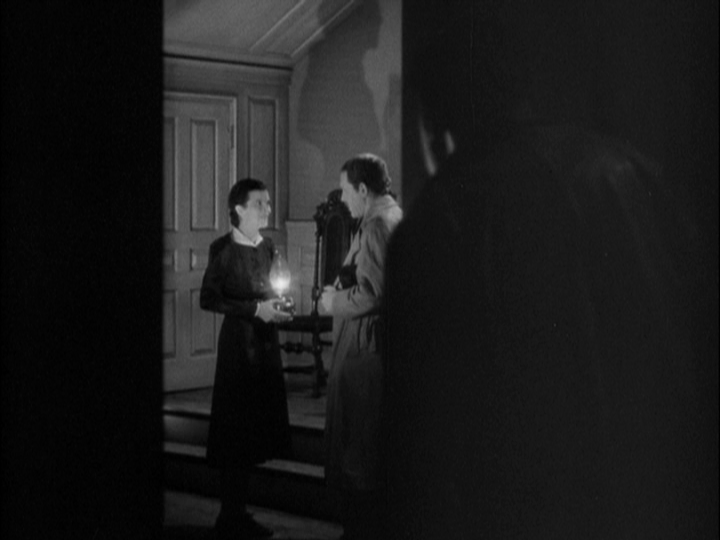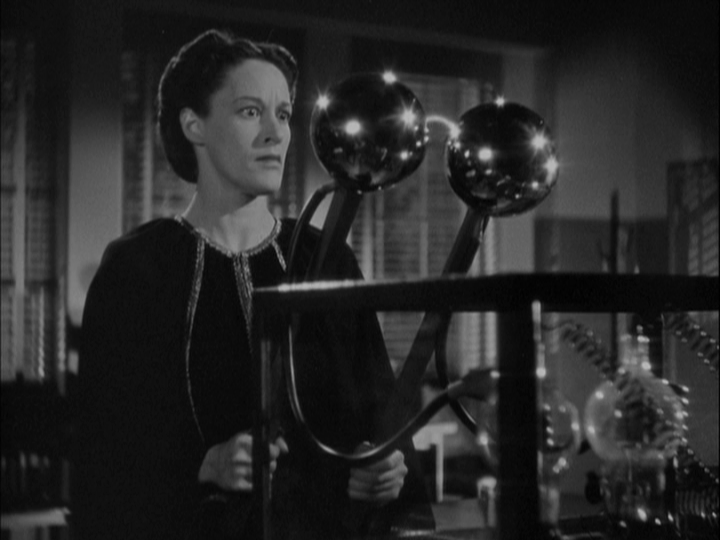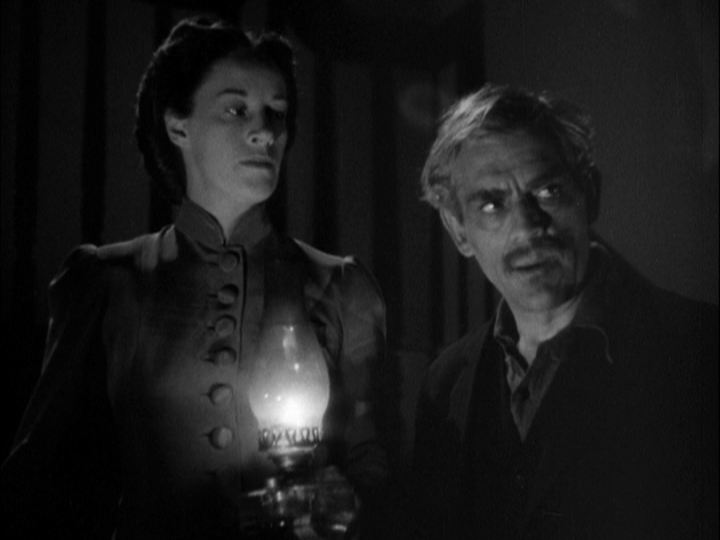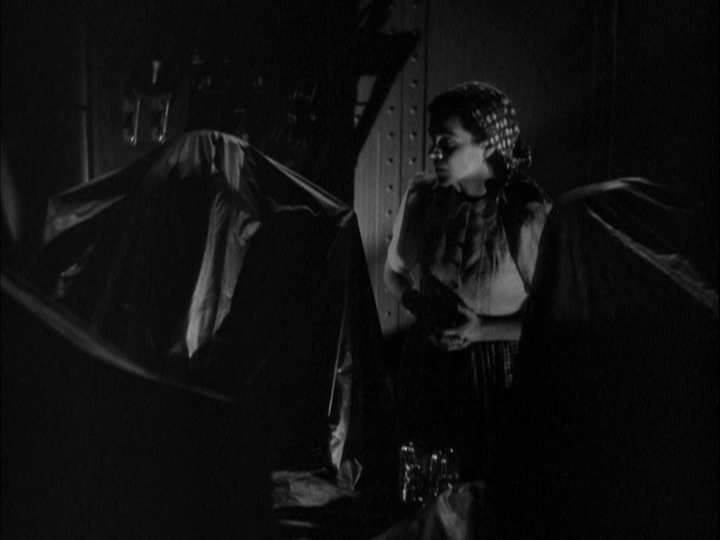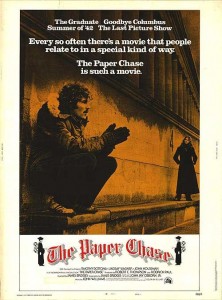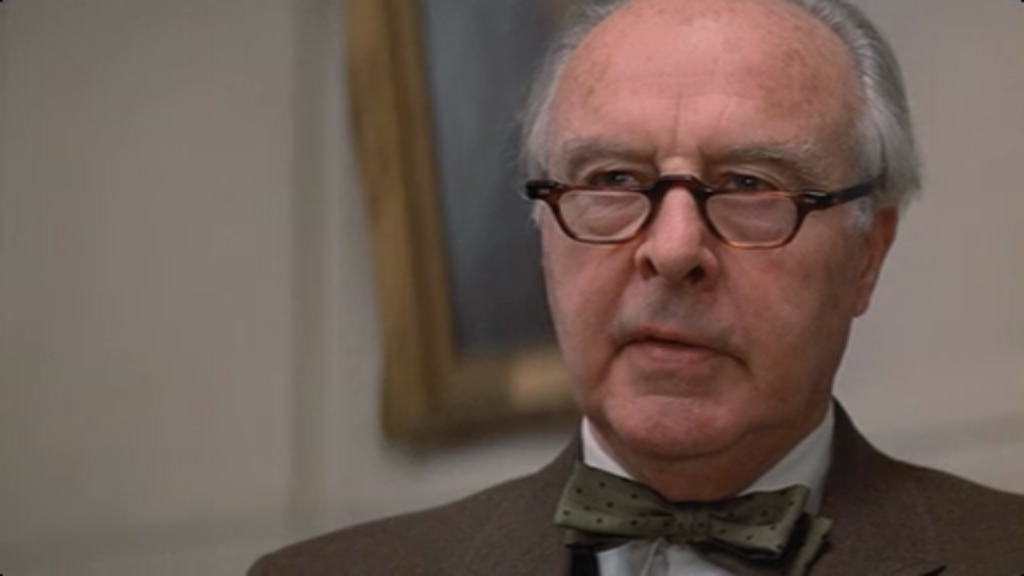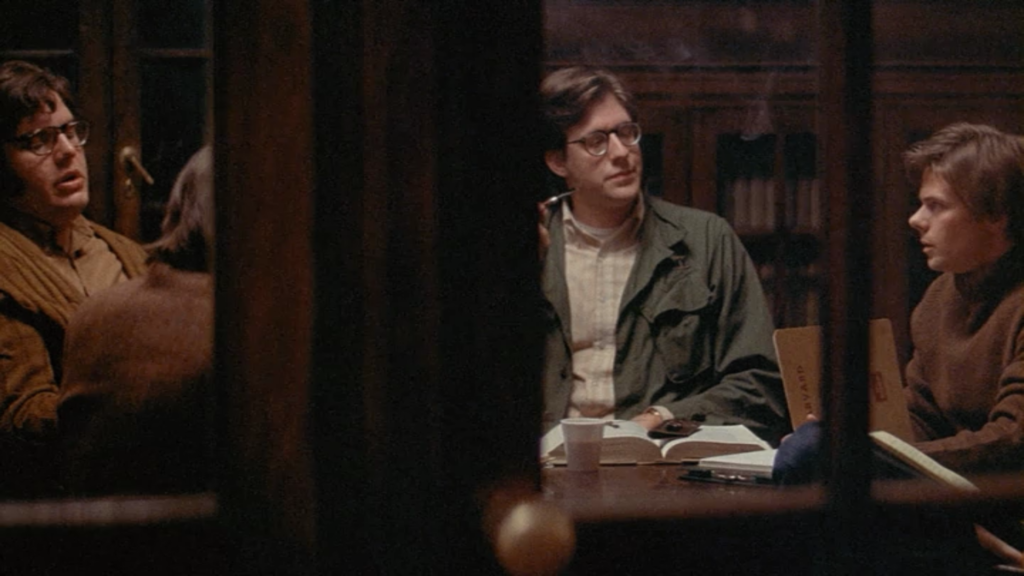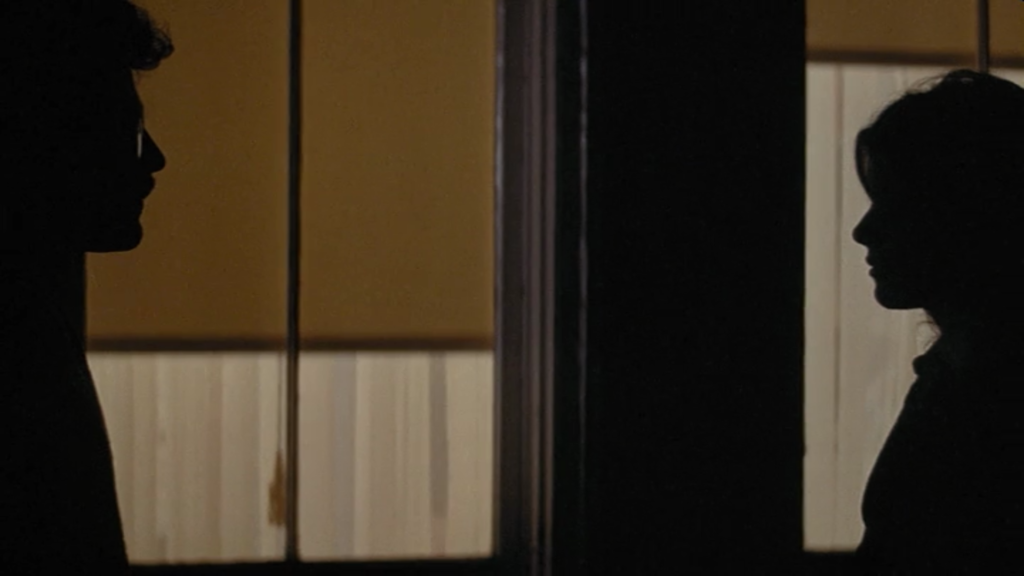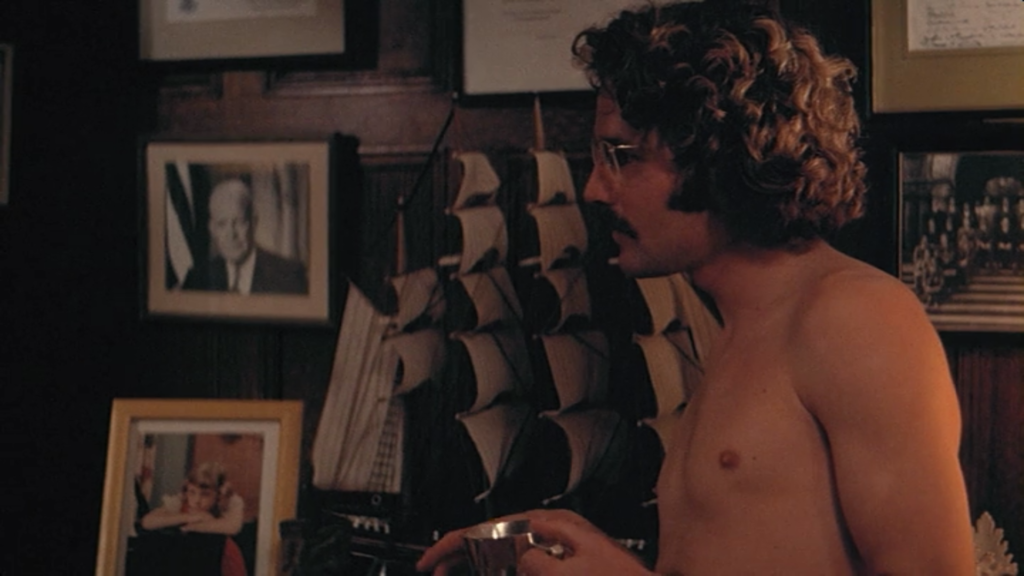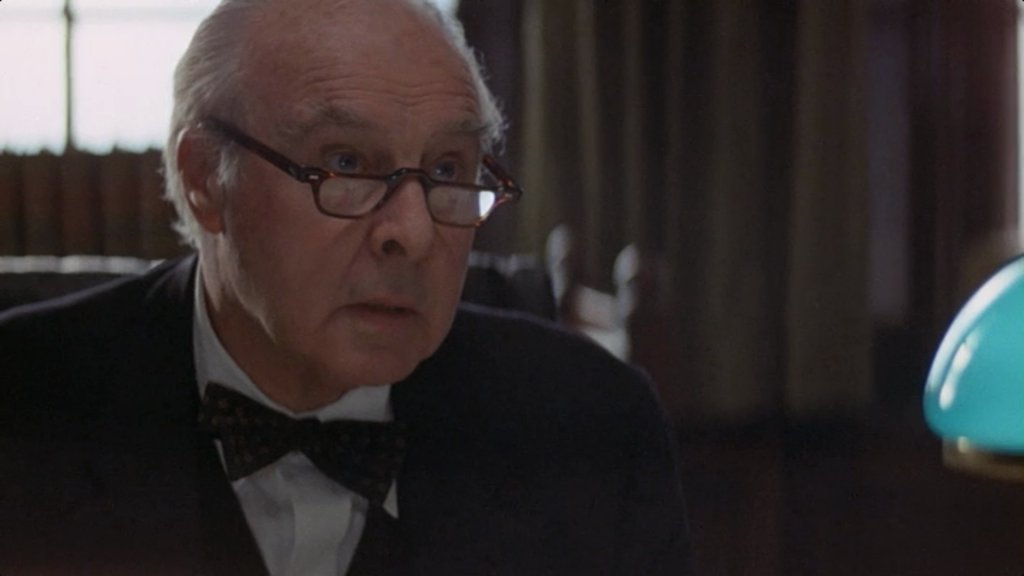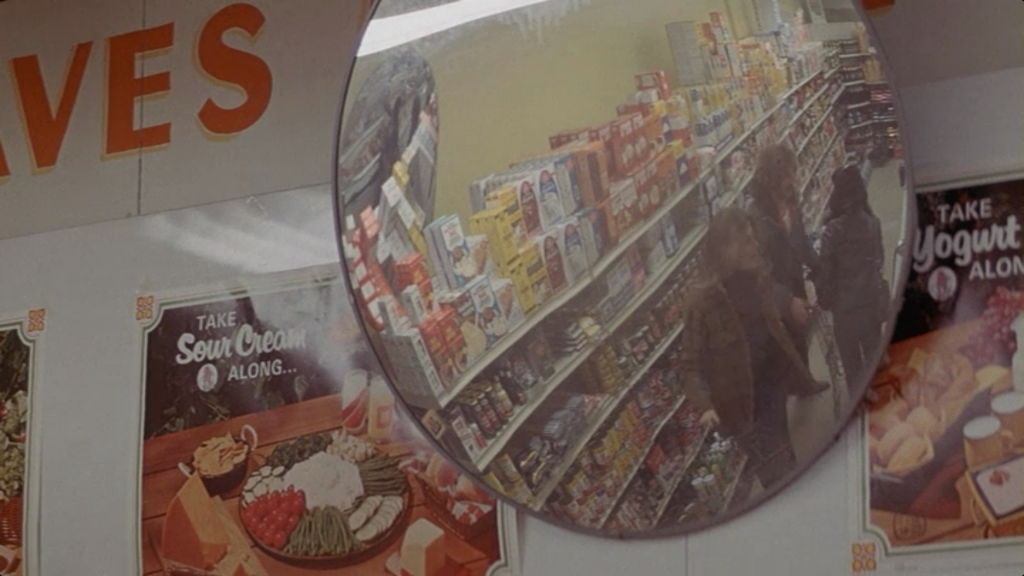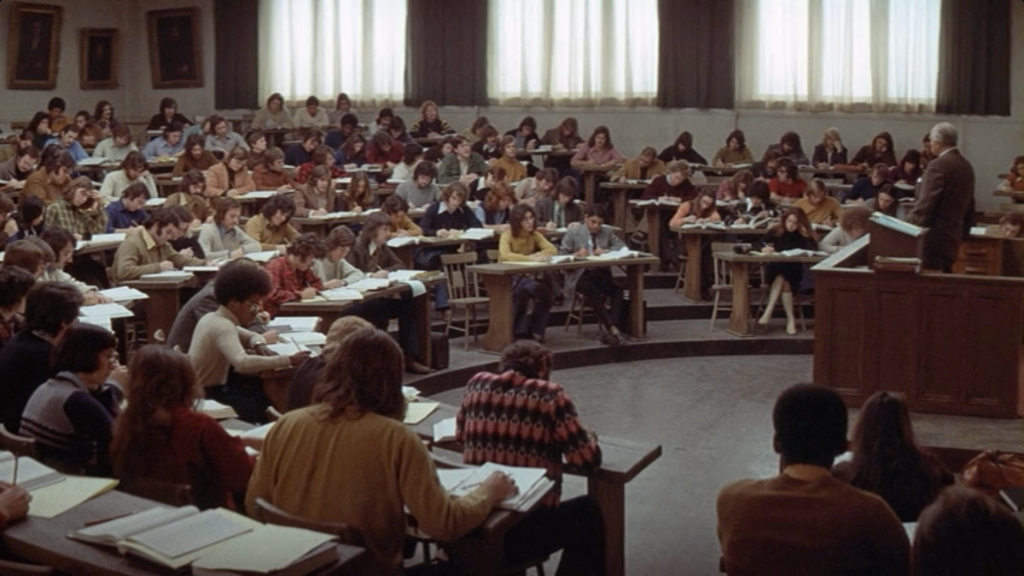|
Genres, Themes, Actors, and Directors:
- Alan Hale Films
- Bette Davis Films
- Femmes Fatales
- Frances Dee Films
- John Cromwell Films
- Leslie Howard Films
- Obsessive Love
Response to Peary’s Review:
Peary argues that this adaptation of the second half of W. Somerset Maugham’s thrice-filmed novel — directed by John Cromwell — is “static, claustrophobic, and uninterestingly acted by Howard”:
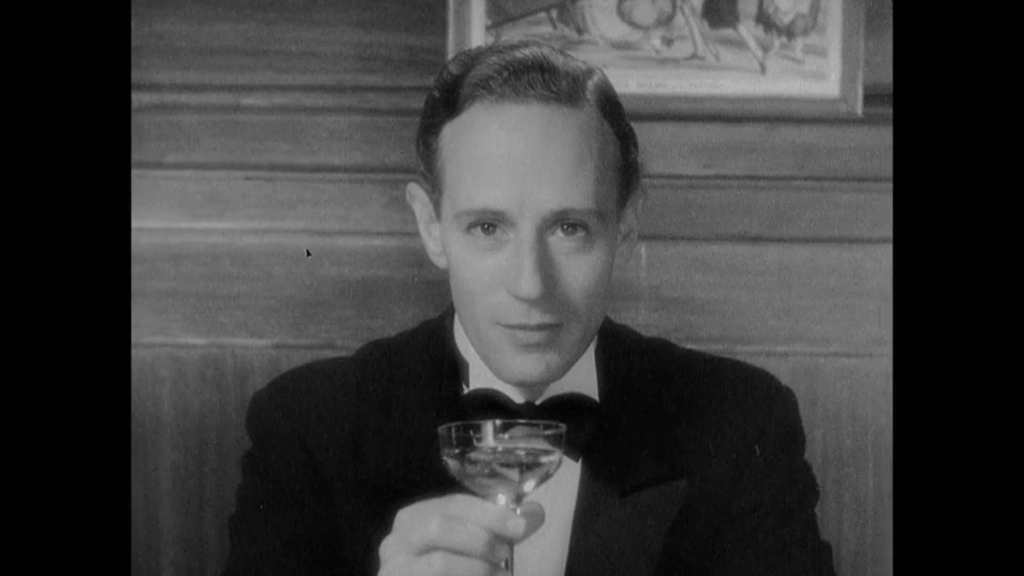
… but that it’s “worth watching” as “the film which really launched Davis’s career”.
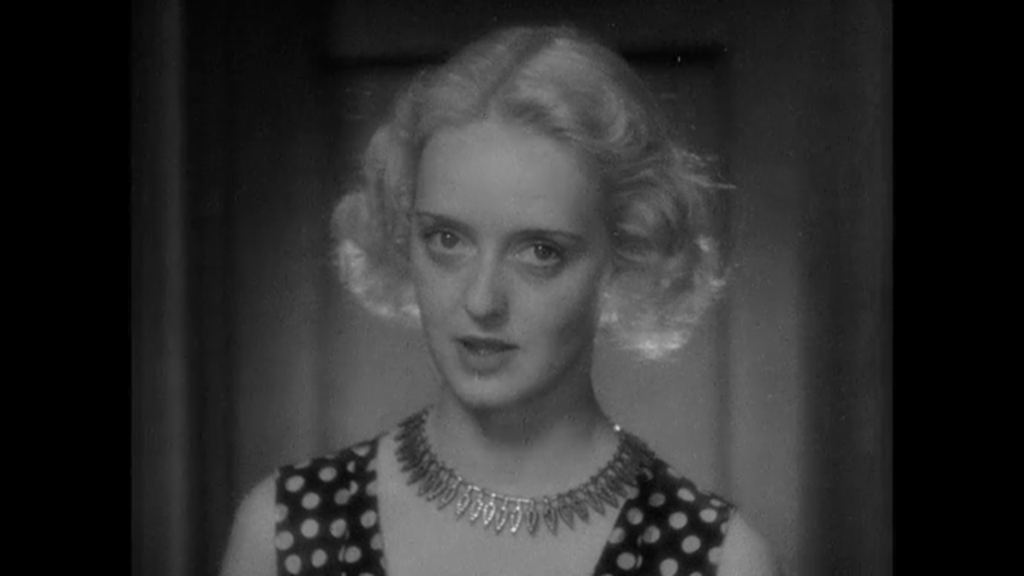
In Alternate Oscars, Peary names Davis Best Actress of the Year for her performance as the “mean and menacing” Mildred, a “cold-hearted, money-loving opportunist who treats Philip like dirt” — or, in the words of New York Times film critic Mourdant Hall, “a heartless little ingrate”. In Alternate Oscars, Peary provides more detailed information on how and why Davis came to take on this role, which “no major Hollywood actress would consider playing” — she apparently “wasn’t concerned about image because no one really knew who she was after twenty-one pictures”, and she “figured [this was] her one shot at stardom”.
Peary writes that this role “made such an impression because it was conceived and played in such an original manner” by Davis, given that her Mildred “isn’t especially pretty… or alluring” and “isn’t smart or knowledgeable”. He points out that she “is not a vamp, she is just cheap, stupid, and shallow” — which is precisely why Howard’s relentless obsession with her is so fascinating.
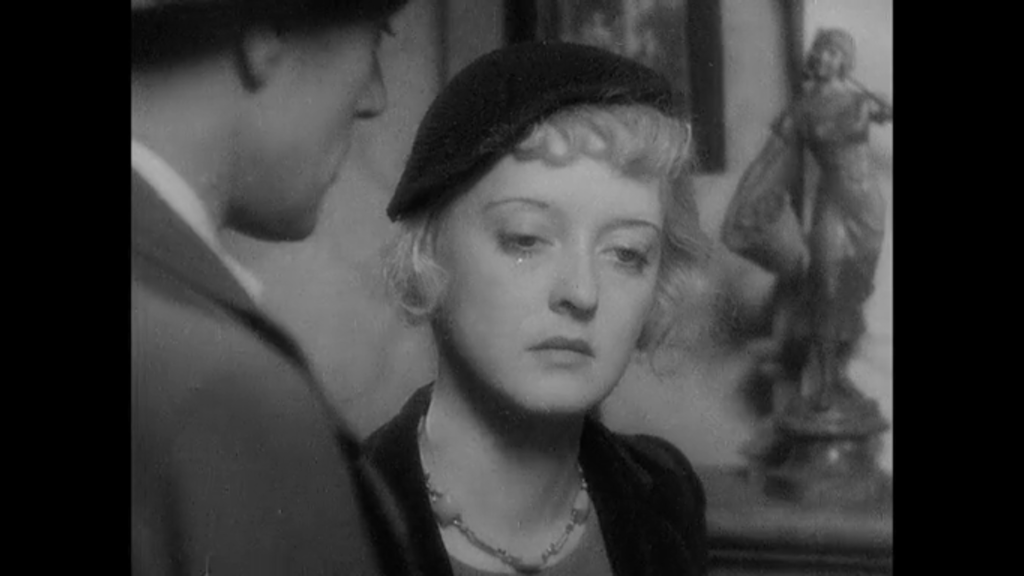
As Peary argues, Philip “hates himself for being a cripple… [and] Mildred is his punishment”. Indeed, Davis’s Mildred is a unique variation on a femme fatale: she’s clearly Philip’s undoing, yet he’s almost entirely responsible for their continued dysfunctional “relationship”. She could genuinely care less about him, but — almost to her own surprise — he continues to make himself available to her time and again; and so, as an inveterate manipulator, she takes easy advantage. Theirs is a morbidly fascinating dynamic — not one I find pleasant to watch, but certainly one film fanatics should see at least once.
Note: Peary ends his review by stating he’s “never seen a film in which so many letters are read” — really? That’s somehow hard to imagine.
Redeeming Qualities and Moments:
- Bette Davis as Mildred
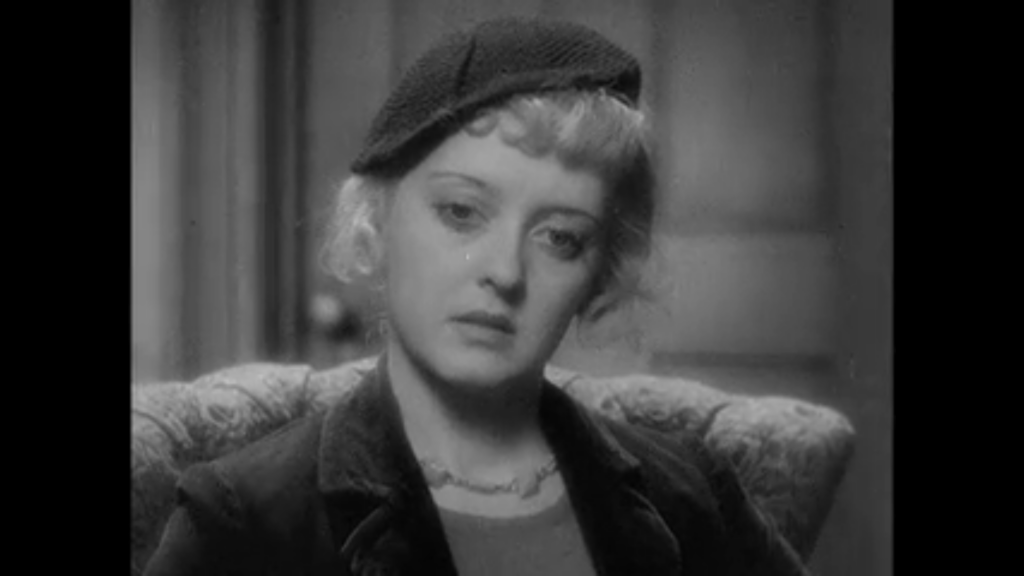
Must See?
Yes, for Davis’s Oscar-nominated performance.
Categories
Categories
Links:
|
